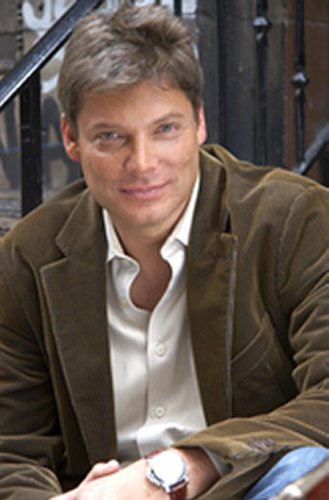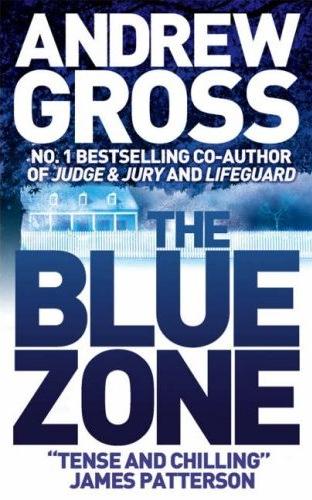|
Let’s
set the scene: You’ve left a pretty good job (world-wide president of HEAD
Sports) to follow the questionable urge to write the great conspiracy novel of
1997 (about the religious-right’s takeover of the U.S. - I know now, more the
subject of non-fiction). You’ve just received your twenty-second
rejection slip, exhorting your agent to root out other publishers, (to which he
replies: “Andy, there are no other publishers…”), and your wife’s cheerful
optimism of the past two years is drying up like a rain shower in Mojave in
July. You’re sort of sitting around, contemplating which cliff to drive your
Audi off, (bemoaning the fact you live at sea level), when out of nowhere the
phone rings, and it’s your agent, asking, “Can you talk to James Patterson. He’d
like to have a word with you.”
“I think I can fit him in,” you say,
counting to five before fully committing as not to appear too desperate. (Okay,
three.)
The call that changed my writing life.
Completely unbeknownst, the top editor (now
president) at one of houses who rejected me, didn’t chuck my book in the
circular can. Instead, she passed it along to her top-selling author, Patterson,
sagely noting, “This guy does women well!” (Something my wife’s been insisting
ever since is a gross overstatement.)
Six books later, all #1 bestsellers, I’d
written about women crime fighters in San Francisco; an inspired innkeeper in
France in the fourteenth century who becomes a court jester to search for his
abducted wife; a likeable loser in Palm Beach thrust in the center of a multiple
homicide; and a single mother whose son is murdered in retaliation by a vicious
mobster—and who sets out to find her revenge. I grew accustomed to seeing my
books read as the morning paper on airplanes, my name atop the bestseller lists,
even receiving a check or two from projects sold to film. As a writer, I was
about as lucky as one of my own characters, leaping the span of a rising
drawbridge on a motorcycle, knocking off the bad guy, finding the girl.
Except somewhere the urge toward illogic
managed to snip at me again. Time to do my own thing, the little voice told me.
Which brings us to The Blue Zone, at last.
People always ask, “Where do you get your
ideas? How do books start—in the brain?” Well, this one started with a simple
dinner party, sitting across from this obnoxious, boastful guy (his and her
Ferraris, a dazzling stone on his wife’s ubiquitous hand, oodles and oodles of
lavish travel.) And as we left, with a slightly jealous roll of the eyes, it was
not too many days later that we opened the New York Times to discover, not
without some amusement) that this very person had been arrested for money
laundering by the FBI.
But then the thought started to percolate,
this could be anyone. Anyone we know in our suburban ease. Respected. Seemingly
careless. Kids in the right schools. Their biggest concern basically, where to
travel on their next trip. And then suddenly how life changes in a nanosecond.
Not for the perpetrator, who’s known who he is all along). But for the people
left behind. The family. The kids. Whose tranquil life slams to a crashing halt.
Who are forced to deal with the shock and the shame.
In this case, the betrayal.
The Blue Zone is basically a story
of betrayal - the most personal kind of betrayal. Between a father and a
daughter’s trust.
It’s the story of Kate Raab, a recent
graduate of Brown University, who seems to have everything—great family,
terrific job out of school, a likeable boyfriend. Until the arc of her carefree
life ends in a day with her successful father’s arrest. And he is forced, in
days, (along with the rest of her family) into the Federal Witness Protection
Program. Kate decides to remain behind, where gradually unsavory things begin to
happen to her, which cast doubt on who her father really is, and she has to hunt
for him inside the secrecy of the Program, and not only find out the truth of
who her father really is, but her entire family history as well.
Now while I think you’ll recognize many of
the traits I learned with Jim—the unrelenting pace, the stunning twists and
surprises, the strong identification with the plight of a likeable lead
character, not figuring out what’s going to happen until the final page—my goal
was never to simply copy him. Or his style. In fact, I think you’ll find a lot
more texture, more character, and hopefully, an emotional pay-off at the end.
This is the type of book I hope to continue writing. Page turners but thrillers
with a heart.
So I hope this “bright idea” works as well
as my previous “bright idea,” though sometimes not in the way I, at first,
intended. It’s a little weird not working with Jim. No partner to discuss the
many twists of the novel with. No lavish book events with throngs of people
queued up in the street. No waking up a few days after publication and seeing
your book and the top of the bestseller lists.
No airport traffic reading it like The
Daily Sun.
Still, I think you’ll find the The Blue
Zone a great read. And basically it all developed from the best “rejection”
I ever had.
© 2007 Andrew
Gross
|






